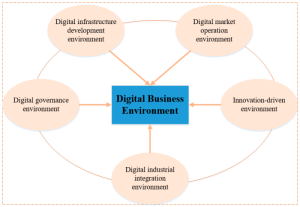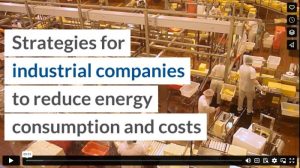
Dive into the world of renewable energy for companies, where sustainability meets profitability in a powerful way. From reducing carbon footprints to innovative solutions, it’s all about embracing a greener future for businesses.
Renewable Energy for Companies
Renewable energy adoption offers numerous benefits for companies, including cost savings, energy independence, and environmental sustainability. By incorporating renewable energy sources like solar, wind, and hydropower, companies can reduce their reliance on fossil fuels, lower energy costs in the long term, and contribute to a cleaner environment.
Benefits of Renewable Energy Adoption
- Cost Savings: Transitioning to renewable energy sources can help companies save money on energy bills and reduce operating costs over time.
- Energy Independence: By generating their own renewable energy, companies can become less dependent on external energy sources and fluctuations in energy prices.
- Environmental Sustainability: Using renewable energy helps companies reduce their carbon footprint and minimize their impact on the environment, leading to a more sustainable business model.
Examples of Successful Renewable Energy Integration
- Google: Google has committed to powering all its operations with renewable energy and has invested in numerous solar and wind projects to achieve this goal.
- Walmart: Walmart has installed solar panels on many of its stores and distribution centers, leading to significant energy savings and reducing its carbon emissions.
- Apple: Apple sources 100% of its electricity from renewable sources and has made significant investments in solar and wind energy projects to power its global operations.
Impact of Renewable Energy on Reducing Carbon Footprint
Companies that switch to renewable energy sources can significantly reduce their carbon footprint by decreasing greenhouse gas emissions associated with traditional energy sources like coal and natural gas. This shift towards cleaner energy not only benefits the environment but also enhances the company’s reputation and appeal to environmentally conscious consumers.
Chemicals and Allied Products

Renewable energy plays a crucial role in promoting sustainable production practices in the chemicals industry. By reducing the reliance on fossil fuels and lowering carbon emissions, companies in this sector can minimize their environmental impact and contribute to a cleaner, greener future.
Role of Renewable Energy in Sustainable Chemical Production
- Renewable energy sources such as solar, wind, and hydropower can power chemical manufacturing processes, reducing greenhouse gas emissions.
- Using renewable energy can help companies meet sustainability goals and improve their corporate social responsibility initiatives.
- By investing in renewable energy solutions, chemical companies can enhance their reputation and attract environmentally-conscious consumers.
Companies Implementing Renewable Energy Solutions
- Dow Chemical Company: Dow has committed to using 750 MW of renewable energy by 2025 and has already installed solar panels at some of its facilities.
- BASF: BASF has invested in wind energy projects and has set a goal to reduce its greenhouse gas emissions by 25% by 2030.
- DuPont: DuPont has implemented energy efficiency measures and invested in biomass and biogas projects to reduce its carbon footprint.
Cost-Effectiveness of Renewable Energy Adoption in Chemical Manufacturing
- While the initial investment in renewable energy infrastructure may be higher, the long-term cost savings from reduced energy bills and potential tax incentives make it a cost-effective choice.
- Renewable energy technologies are becoming more efficient and cost-competitive, making them a viable option for chemical manufacturing companies looking to reduce operational costs.
- In the long run, transitioning to renewable energy can help chemical companies hedge against volatile fossil fuel prices and future regulatory changes related to carbon emissions.
Construction and Maintenance
Renewable energy plays a crucial role in the construction and maintenance of infrastructure, offering sustainable solutions for companies in the industry. By leveraging renewable energy sources, construction companies can reduce their carbon footprint, lower energy costs, and contribute to a cleaner environment.
Renewable Energy Technologies for Construction Sites
- Solar Power: Solar panels can be installed on rooftops or open spaces at construction sites to harness the power of the sun and generate electricity.
- Wind Power: Wind turbines can be set up on construction sites with suitable wind conditions to convert wind energy into electricity.
- Biomass Energy: Biomass boilers can be used to provide heat and power for construction equipment and facilities using organic materials.
Long-Term Benefits of Using Renewable Energy in Maintenance Operations
- Cost Savings: Over time, construction companies can save on energy costs by using renewable sources such as solar or wind power for maintenance operations.
- Environmental Impact: By reducing reliance on fossil fuels, construction companies can lower their carbon emissions and contribute to a healthier environment.
- Sustainability: Incorporating renewable energy into maintenance operations ensures a sustainable approach to energy usage, aligning with green building practices.
Consumer Goods and Services
Consumer goods companies can play a significant role in promoting sustainability by integrating renewable energy into their supply chain. This not only helps reduce greenhouse gas emissions but also showcases a commitment to environmental responsibility.
Integration of Renewable Energy in Consumer Goods Supply Chain
- Investing in solar panels to power manufacturing facilities.
- Partnering with renewable energy providers to source electricity from clean sources.
- Implementing energy-efficient practices in production processes.
- Using recycled materials and reducing waste in packaging.
Sustainable Practices in Consumer Goods Industry
- Leading brands like Patagonia and Nike using renewable energy to power their operations.
- Companies like Unilever and Procter & Gamble setting ambitious sustainability goals.
- Implementing circular economy principles to reduce waste and promote product longevity.
Consumer Perception and Demand for Renewable Energy Products
- Consumers are increasingly aware of environmental issues and seek products with sustainable credentials.
- Studies show that a growing number of consumers are willing to pay a premium for products manufactured using renewable energy sources.
- Brands that prioritize sustainability and transparency in their supply chain are likely to attract and retain environmentally conscious consumers.
Business Energy
Renewable energy plays a crucial role in ensuring a stable energy supply for businesses. As the demand for energy continues to rise, businesses are faced with the challenge of securing a reliable and sustainable source of power to support their operations. Investing in renewable energy not only helps reduce carbon emissions but also provides long-term energy security for businesses.
Transitioning to Renewable Energy
Transitioning from conventional energy sources to renewable energy for business operations involves a strategic approach. Businesses need to assess their energy needs, evaluate the feasibility of renewable energy options, and create a comprehensive plan for implementation. This process may include conducting energy audits, identifying suitable renewable energy solutions, securing financing, and engaging with renewable energy providers.
- Conducting Energy Audits: Businesses should start by analyzing their current energy consumption patterns and identifying areas where energy efficiency can be improved.
- Evaluating Renewable Energy Options: Businesses need to research and assess the various renewable energy sources available, such as solar, wind, hydro, and geothermal power.
- Creating a Comprehensive Plan: Developing a detailed plan for transitioning to renewable energy, including setting goals, timelines, and budget allocations.
- Securing Financing: Businesses may explore financing options such as grants, incentives, loans, or power purchase agreements to help fund their renewable energy projects.
- Engaging with Renewable Energy Providers: Collaborating with experienced renewable energy providers can help businesses navigate the transition process and ensure a successful implementation.
Key Considerations for Investing in Renewable Energy Solutions
Investing in renewable energy solutions requires careful consideration of various factors to ensure the success and sustainability of the projects. Key factors businesses should take into account include:
- Cost-Benefit Analysis: Conducting a thorough cost-benefit analysis to determine the financial viability of renewable energy investments.
- Regulatory Environment: Understanding the regulatory landscape and incentives available for renewable energy projects in the business’s location.
- Technology Selection: Choosing the most suitable renewable energy technology based on the business’s energy needs, location, and budget.
- Energy Storage: Considering energy storage solutions to ensure continuous power supply and maximize the benefits of renewable energy sources.
- Sustainability Goals: Aligning renewable energy investments with the business’s sustainability goals and commitment to reducing carbon emissions.
Business Environment

Renewable energy adoption in the business sector has a significant impact on the overall business environment. Companies that choose to implement renewable energy initiatives can see improvements in various aspects of their operations, from cost savings to enhanced sustainability practices.
Impact of Renewable Energy Adoption
- Reduced operational costs: By utilizing renewable energy sources such as solar or wind power, companies can reduce their reliance on traditional energy sources, leading to lower energy bills and operational costs.
- Enhanced sustainability: Incorporating renewable energy into business operations can help companies reduce their carbon footprint and contribute to a cleaner, more sustainable environment.
- Greater energy independence: Investing in renewable energy allows companies to become less reliant on external energy sources, providing more stability and control over their energy supply.
Improving Company Reputation
- Positive branding: Companies that demonstrate a commitment to renewable energy and sustainability initiatives can enhance their reputation among consumers, investors, and other stakeholders.
- Attracting top talent: Employees are increasingly looking to work for companies that prioritize environmental responsibility, making renewable energy initiatives a valuable recruitment tool.
- Building trust and loyalty: Consumers are more likely to support companies that prioritize sustainability, leading to increased customer loyalty and trust in the brand.
Government Regulations and Incentives
- Renewable energy targets: Many governments have set renewable energy targets and regulations to encourage businesses to adopt cleaner energy sources.
- Financial incentives: Governments often provide financial incentives such as tax credits, rebates, and grants to businesses that invest in renewable energy technologies.
- Carbon pricing: Some countries have implemented carbon pricing mechanisms to penalize high carbon emitters and incentivize the adoption of renewable energy.
Concluding Remarks
As we conclude our journey through the realm of renewable energy for companies, remember that going green isn’t just a trend—it’s a smart business move with long-term benefits for both the environment and your bottom line.
Question Bank
How can renewable energy adoption benefit companies?
Renewable energy adoption can lead to cost savings, reduced carbon footprint, and enhanced brand reputation for companies.
What are some examples of successful renewable energy integration in businesses?
Companies like Google and Apple have successfully integrated renewable energy sources like solar and wind power into their operations.
What impact does renewable energy have on reducing carbon footprint in company operations?
Renewable energy helps companies significantly reduce their carbon footprint by shifting away from fossil fuel-based energy sources.





